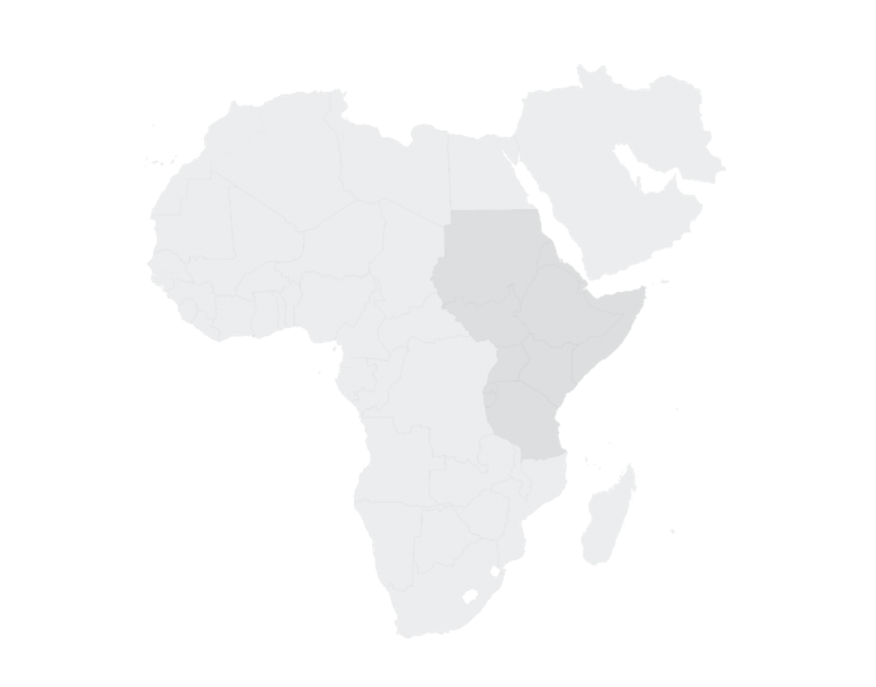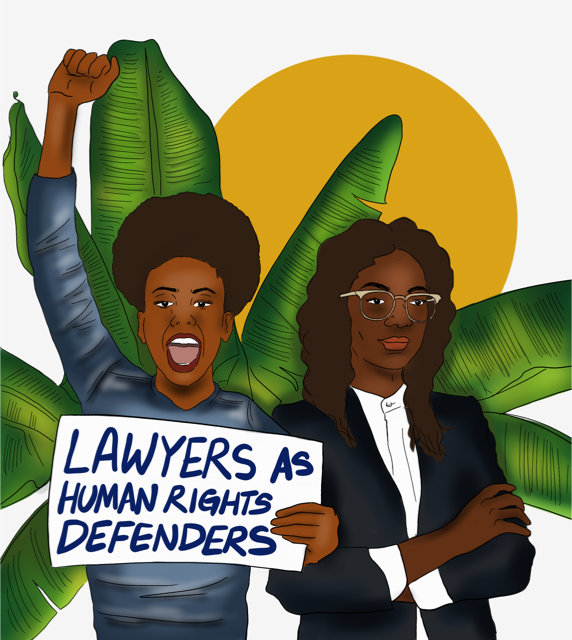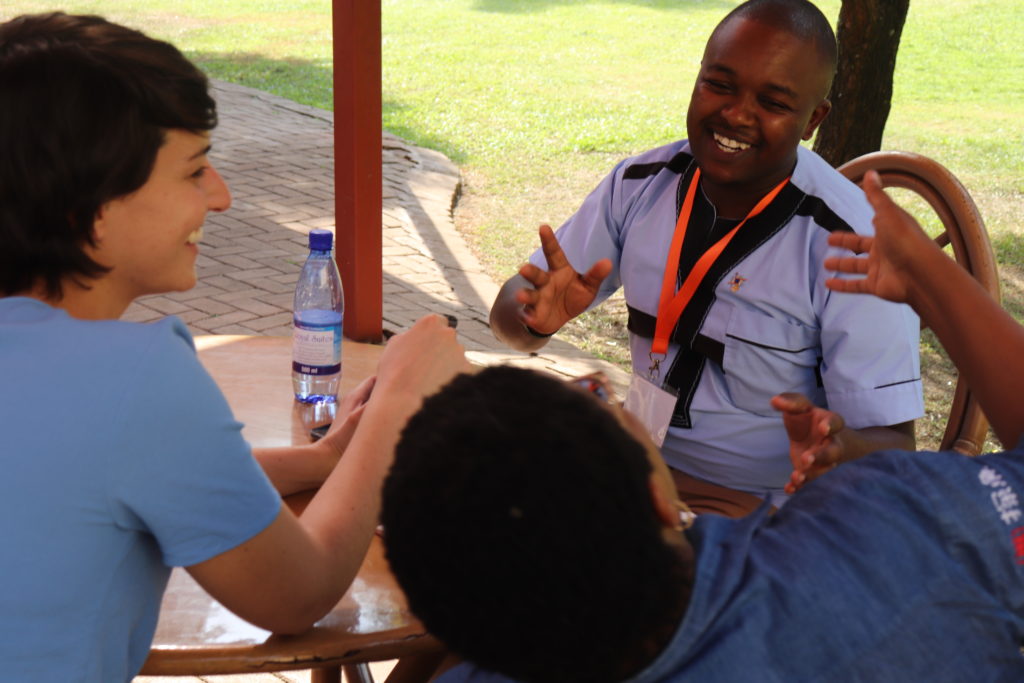
12 February, 2020
Updates from January 2020!
This post first appeared on DefendDefenders’ website
Dear friends and colleagues,
2020 is an auspicious year for women’s and girls’ rights, as we commemorate the 25th anniversary of the Beijing Declaration – recognised as one of the most progressive roadmaps for women’s and girl’s rights. DefendDefenders will honour this anniversary by continuing to boost women human rights defenders (HRDs) in the sub-region.
We are pleased to announce that Sudan will be our 2020 focus country, with an emphasis on Sudanese women HRDs – the frontline activists during the 2019 revolution. DefendDefenders’ 2019 mission to Sudan renewed my optimism for a Sudan where human rights are respected and upheld, and we will, together with Sudanese HRDs, work towards this goal in 2020 and beyond. To commemorate the International Women’s Day 2020, under the United Nations (UN) theme I am Generation Equality: Realizing Women’s Rights, we will shine light on the outstanding work of women HRDs in the region through a two-weeks campaign.
We continue to support national HRD coalitions in the East and Horn of Africa, as they are the cornerstone of HRDs’ protection and promotion. As a proud member of the Kenyan Defenders Coalitions’ board, I attended their board meeting in January 2020, which reassured my confidence in their progressive work at the national level. Additionally, this month, we were honored to welcome communication staff from national HRD coalitions and sub-regional HRD networks to a communications workshop, to equip them with the necessary communications tools to enhance their work in their respective regions.
Daily, we combat issues related to shrinking space in the sub-region. The worrying trends in Tanzania continue, with HRDs caught between a rock and a hard place as they speak truth to power. In January 2020 we called for the release of Tanzanian HRD Tito Elia Magoti.
This year, a few countries in the sub region will be going to the polls, including Burundi, Ethiopia, Somalia and Tanzania. During electoral periods, we witness increased targeted attacks on HRDs monitoring and reporting on elections. We will continue to monitor the developments in the respective countries, and endeavor to meet the needs of defenders at risk to allow them continue their crucial work.
Yours sincerely,
Hassan Shire
Executive Director, DefendDefenders
Human Rights Defender of the Month (January 2020): Faiza Abdi Mohamed

Faiza Abdi Mohamed (Photo: DefendDefenders)
The Somali activist Faiza Abdi Mohamed has promoted human rights in her home country for a decade, which has made her a target of verbal abuse, threats, and arbitrary arrest, forcing her to flee Somalia and seek exile in Uganda. Yet, she remains extremely vocal about human rights violations in her country. “I’ve lost so many of my friends due to cruelties, so I can’t keep quiet,” she says.
Faiza has played an important role in the protection of human rights defenders (HRDs) in her country. From 2012, she was part of DefendDefenders’ three-year protection project for HRDs in Somalia, where she monitored human rights violations throughout the country. Moreover, from 2015, she was the National Coordinator of the National Coalition of Human Rights Defenders in Somalia (NCHRD-S).
Did you know?
That Dr. Stella Nyanzi, a Ugandan academic, writer, and feminist activist, is the winner of the 2020 Oxfam Novib/PEN International Award for Freedom of Expression? Read more here.
Read & Listen:
- Report Policy brief & podcast: On the Legal Frontline: Lawyers and Paralegals as Human Rights Defenders in the East and Horn of Africa, DefendDefenders and Goldsmiths University, January 2020.
- Report: Four elections that will shape East Africa, The East African Monitor Report, January 2020.
- Report: Chinese government threat to Human Rights, Human Rights Watch, January 2020.
- Report: Despite Fewer Killings, Somali Journalists Remain Targets, Voice of America, January 2020.
- Article: How Forced Labor in Eritrea Is Linked to E.U.-Funded Projects, New York Times, January 2020.
Updates from DefendDefenders:
- On 31 January 2020, DefendDefenders in collaboration with Goldsmiths University launched a policy brief and a three-episode podcast about lawyers as HRDs in the East and Horn of Africa;
- On 21-22 January 2020, DefendDefenders welcomed communications staff from national HRD coalitions and sub-regional networks to a two-day communications workshop in Kampala, Uganda. The workshop, organised together with Civil Rights Defenders, aimed to raise their capacity and identify ways to increase our collaboration;

DefendDefenders launched the policy brief and podcast ‘On the Legal Frontline: Lawyers and Paralegals as Human Rights Defenders in the East and Horn of Africa,’ on 31 January 2020.
- In January 2020, DefendDefenders’ Representative to the UN discussed human rights achievements and challenges of the UN as the organisation prepares to turn 75. Read his interview with DefendDefenders’ partner CIVICUS;
- On 28-30 January 2020, 12 HRDs received training in human rights monitoring, documenting, and reporting (MDR). The participants represented five organisations: Advocacy for Child Relief (ACR), Center for Citizens Communication and Justice (CECICOJU), Strategic Response International (SRI), West Nile Web, and Women of Uganda Network (WOUGNET);
- On 28 January 2020, two verification missions were conducted at Ugandan human rights organisations, assessing the reported security incidents and needs to address future incidents, threats, and risks;
- On 24 January 2020, DefendDefenders engaged with partners to discuss the current situation of HRDs in Sudan, and to identify ways to ensure protection of Sudanese HRDs;
- In January 2020, DefendDefenders launched the new Ttaala project in Uganda with a cohort of six human rights organisations, who se setsought to gain digital skills for enhanced human rights advocacy;
- DefendDefenders carried out digital security assessments and support for two Ugandan human rights organisations;
- On 29 January 2020, DefendDefenders met with Chapter Four Uganda to discuss ways to enhance security adherence at the office, especially among staff members;
- On 9-15 January 2020, DefendDefenders conducted case assessments in three Ugandan human rights organisations in Mbale, Abim, and Bulisa; and
- In January 2020, DefendDefenders received 27 protection requests from HRDs: 12 were approved and supported, seven cases did not meet the requirements, and eight cases are still pending.



DefendDefenders welcomed communications staff from national HRD coalitions and sub-regional HRD network from across Africa for a two-day communications workshop in Kampala, Uganda, from 21-22 January 2020.
Updates from AfricanDefenders:
- In January 2020, AfricanDefenders prepared for their upcoming workshop on fostering collaboration between National Human Rights Institutions (NHRIs) and CSOs in Africa, which will take place on 30-31 March 2020 in Addis Ababa, Ethiopia; and
- AfricanDefenders prepared for their upcoming workshop on the collaboration of universities and CSOs in the protection and promotion of HRDs, scheduled to take place on 1-2 April 2020 in Addis Ababa, Ethiopia.
Human Rights updates from the East and Horn of Africa sub-region:
Burundi:
- More than 4,000 graves have been uncovered following an investigation by the Truth and Reconciliation Commission (TRC) into conflicts since their independence in 1962. TRC, set up in 2018 to shed light on ethnic tensions, confirmed that 142,505 victims were found in the grave.
- A court in Burundi sentenced four Iwacu journalists to two years and six months in prison, in addition to giving them a fine of $530 each, for attempting to undermine state security. The European parliament had earlier on urged Burundian authorities to release the four journalists who have been jailed since October 2019, and appealed to drop the charges against them.
- Following the announcement that President Pierre Nkurunziza will not seek re-election, Burundi’s ruling party, the National Council for the Defence of Democracy–Forces for the Defence of Democracy (CNDD-FDD), has nominated Evarist Ndayishimiye as its presidential flagbearer in the election, slated for May 2020. Ndayishimiye is a retired army general who also heads the Military Affairs Department, and has previously served as Burundi’s Interior and Security Minister.
- Ahead of the May 2020 election, Burundi is drawing up legislation to give President Nkurunziza the title of “Supreme Guide of Patriotism,” state television reported. This is despite widespread human rights abuses and an economic meltdown under his leadership. Burundi’s parliament has voted to pay USD 530,000 to President Nkurunziza, as well as to provide him with a luxury villa when he leaves office.
Ethiopia:
- The whereabouts of the kidnapped students, taken captives by gunmen in Oromia regional state in western Ethiopia, remain unknown. On 11 January, the Prime Minister’s Press Secretary, Nigussu Tilahun, disclosed that 21 students were released while six remained captives.
- Ethiopia proposed to hold its national elections on 16 August 2020, according to the National Electoral Board of Ethiopia.
- Ethiopian Parliament passed a gun-control law to tackle a rise in sectarian violence. The legislation is aimed at curbing gun ownership, after a surge in regional ethnic violence blamed on a proliferation of small arms in private hands.
- The National Electoral Board of Ethiopia has formally recognised Balderas for Genuine Democracy, the recently established political party led by the former human rights activist and multiple global journalism award winner Eskinder Nega.
Eritrea:
- Women in the Eritrean National Service (ENS) allege that sexual violence against women is prevalent in the military, as attested to by former soldiers who have fled to Europe. The women narrated their experiences to theAfrican Studies Review.
Kenya:
- The attacks against LGBT+ persons in Kakuma Reception Center escalates as 45 LGBT+ refugees were beaten and injured in a mob attack inside the center run by the UN High Commissioner for Refugees (UNHCR). UNHCR officials claimed that the LGBT+ refugees only suffered petty vandalism and theft, and offered minimal support. Human rights organisations call on immediate action to end the violence against LGBT+ persons in the camp.
- Human rights organisations accused the Kenyan government of repeatedly failing to honor its promise to address human rights abuses, including extrajudicial killings and enforced disappearances. Activists have threatened to sue the Kenyan government for the increased cases of human rights violations in the coastal regions. Kenya’s Independent Policing Oversight Authority (IPOA) issued a report documenting over 3,000 cases of abuse by Kenyan police, mostly in economically disenfranchised areas.
- The Kenya Editors’ Guild raised concern over the increased attacks on journalists in 2020. In a letter to the Inspector General Hillary Mutyambai, the Guild is concerned that the growing spate of assaults are perpetrated by officers of the National Police Service. Four journalists have been attacked since the year began.
- Muslims for Human Rights (MUHURI) dropped plans to sue the government over post-election violence due to lack of evidence. In April 2019, MUHURI said it would seek justice for the more than 200 victims of police brutality in Kisumu and Nyamira counties.
- The UN has expressed concern over rising terror attacks in Kenya, especially in schools. Interior Cabinet Secretary, Fred Matiangi, warned Kenyans harboring criminal and terrorist gangs, saying security agencies will not spare them either. Al-Shabaab has warned of more attacks in Kenya as the country strengthens its borders.
- Police conduct came under scrutiny as human rights organisations questioned the arrest of online activistMildred Atieno Owino. The protests came after she was taken into custody at Industrial Police Station in Nairobi, and is to be charged with “incitement to violence.”
Rwanda:
- Selfworth Initiative, a Ugandan human rights organisation, has protested the release of nine Rwandans held in detention in Uganda, to ease tension between the two countries. The Executive Director of Selfworth Initiative, Prossy Boonabana, said in a statement that they preferred the trial of the nine to continue for the Rwandan refugees who were kidnapped to get justice.
- Rwanda’s Court of Appeal upheld the conviction of two former high-ranking army officers, who are said to be in failing health, who have been charged with 21 years and 20 years in prison, respectively. Their conviction is based on insurrection and tarnishing of the government’s image. Human rights organisations say the decision fits a pattern of government repression of critics.
- Rwandan political opponent, Augistin Niyitegeka, was reported missing. According to his wife, Emiline Nishimwe, Niyitegeka, who last year formed the National Democratic Party, disappeared on 2 January 2020 while returning from Burundi.
- Six Rwandan opposition figures have been jailed for seven to 12 years after being convicted of forming an illegal armed group and conspiring against the government, state radio reported. The six belonged to the FDU-Inkingi party, formerly led by Victoire Ingabire, an outspoken critic of President Paul Kagame.
- Rwandan authorities are seeking to formalise their abusive arrests and detention of vulnerable street children under the pretense of rehabilitating them. In a report, Human Rights Watch called for the immediate closure of Gikondo Transit Center, where children are arbitrarily detained and abused.
Somalia/Somaliland:
- Somalia’s police detained Ahmed Abdi Adawe, a senior TV journalist, in Mogadishu, while seven other journalists had their equipment confiscated. It is reported that the police deleted footage from the journalists’ cameras following a deadly car bomb near the country’s parliament.
Sudan:
- Sudan’s Ex-President, Omar al-Bashir, has been sent to a reform center after he was found guilty of corruption. Thousands of supporters of the Sudan Liberation Movement, under the leadership of Abdelwahid El Nur (SLM-AW), took part in demonstrations demanding the handover of al-Bashir and other indicted war criminals to the International Criminal Court (ICC).
- Sudan’s Prime Minister Abdalla Hamdok, alongside UN officials, embarked on a peace mission to territory within a rebel stronghold, in an aim to end the country’s long-running civil conflicts.
- Sudan’s Anti-Corruption Authority has denied limiting press freedom, despite their decision to suspend Ashorooq and Teiba TV satellite channels, and El Sudani and El Ray El Aam newspapers.
- Victims of human rights abuse in Sudan can now file their complaints to the Committee for Investigations of Extrajudicial Killings, Violations of Human Rights and Acts that Constitute Crimes under the Criminal Code of 1991.
- The Pan African Lawyers Union (PALU) has condemned the decision by the Sudanese government to dissolve of the Sudan Bar Association (SBA), and call for the reversal of a new law that purports to limit the jurisdiction of the Sudanese Court on Appeal.
- The United States (US) has urged Sudan to pay financial compensations to family members of people killed or injured in terrorist attacks before it is removed from the US list of State Sponsors of Terrorism. Sudanese Foreign Minister Asma Abdallah discussed the request with US Under Secretary of State for Political Affairs, David Hale, during his visit to Washington.
South Sudan:
- Arek Ayii Deng, a female senior government official, has raised concern over the lack of respect for women in the country. “We, the women in Aweil, are not having even one percent of our rights being respected,” says Arek Ayii Deng.
- The US has sanctioned Taban Deng Gai’s involvement in serious human rights abuse, including the disappearance and murder of Samuel Dong Luak and Aggrey Ezboni Idri. He has denied the charges, terming them as “regrettable and baseless.” Following the sanction, journalist Ijjo Bosco Modi, working for a state-owned radio station in Torit, was detained after airing a story about Taban Deng Gai’s alleged role in the serious human rights abuse. However, Eye Radio reported that he was arrested for allegedly disobeying orders to cover a news story.
Tanzania:
- Kwanza TV, a privately-owned Tanzanian Internet broadcaster, filed an appeal after an initial petition challenging their six-month ban, was dismissed by the state broadcasting authority. In the suspension, dated 27 September 2019, the Tanzania Communications Regulatory Authority (TCRA) also imposed a Tsh5 million (2,250 USD) fine on two other online stations, Watetezi TV and Ayo TV.
- Tanzanian activists have urged the World Bank to delay a $500 million loan for education projects due to the new restriction on pregnant girls from attending school, imposed by President John Magufuli. Human rights organisaitons have raised concern over the World Banks’ disregard for the pregnant schoolgirls ban.
- President Magufuli’s pledge that the 2020 elections, scheduled to take place in November 2020, will be free and fair has been met with great skepticism from civil society.
Uganda:
- Ugandan police arrested Member of Parliament Robert Kyagulanyi, popularly knownown as Bobi Wine, and fired teargas at his supporters as he held a rally for his 2021 presidential bid. Human rights organisations warnthis spells trouble for the 2021 election. During one of Kyagulanyi’s rallies’, Willy Tamale and three other journalists were arrested while covering the planned event. Committee to Protect Journalists (CPJ) called onthe Ugandan police to drop all charges against the journalists.
- Officials from the Ministry of Foreign Affairs have been barred from discussing or making public statements on the relationship between Uganda and Rwanda to avoid derailing the ongoing process to patch the strained relations between the two countries.
- The National Coalition of Human Rights Defenders Uganda (NCHRD-U) has accused the police of misapplying the Public Order Management Act to unfairly restrict legitimate assemblies of HRDs. Robert Kirenga, the NCHRD-U Executive Director, called for an end to brutality, arbitrary arrests, incommunicado detention, and attacks against HRDs.



